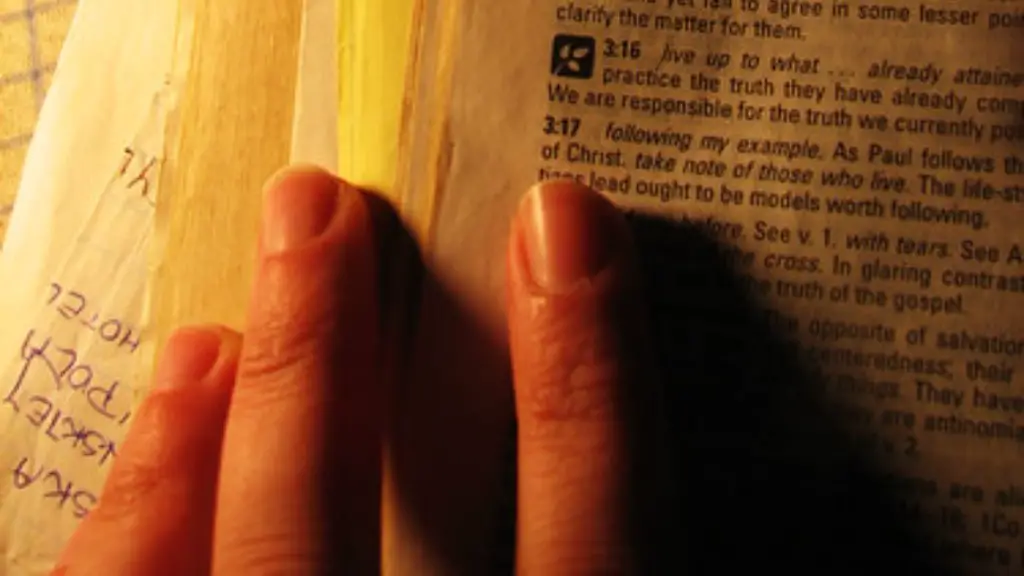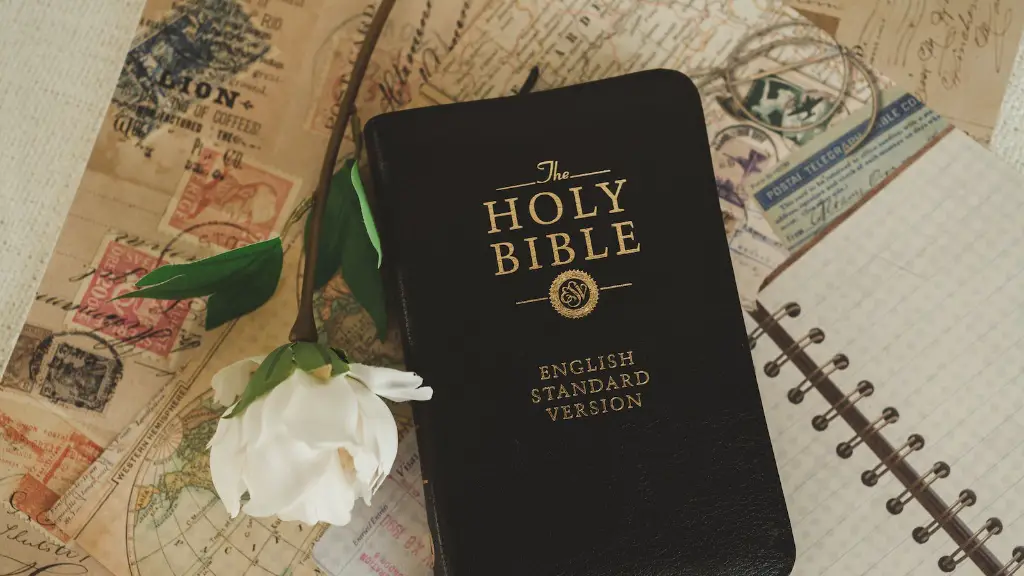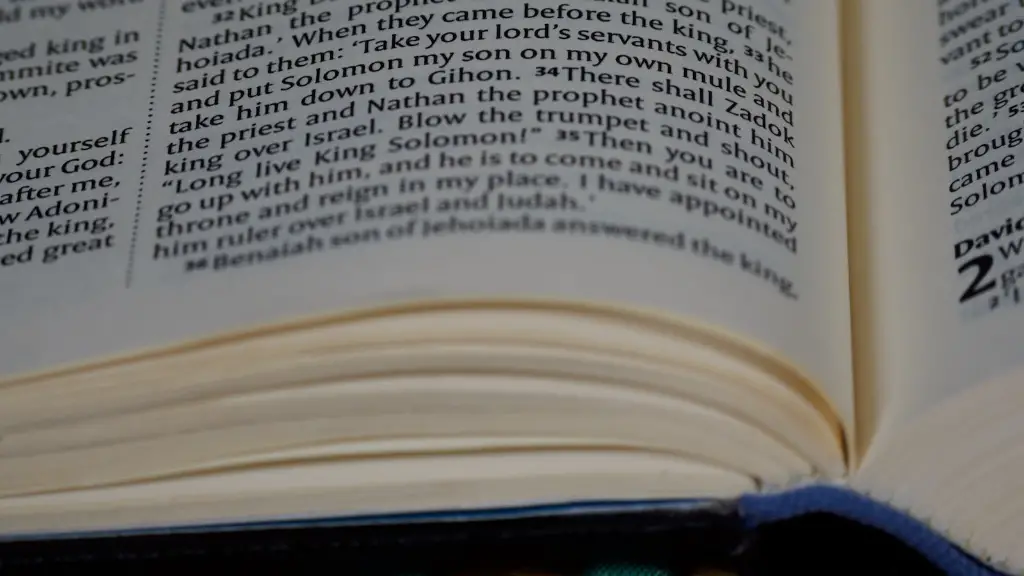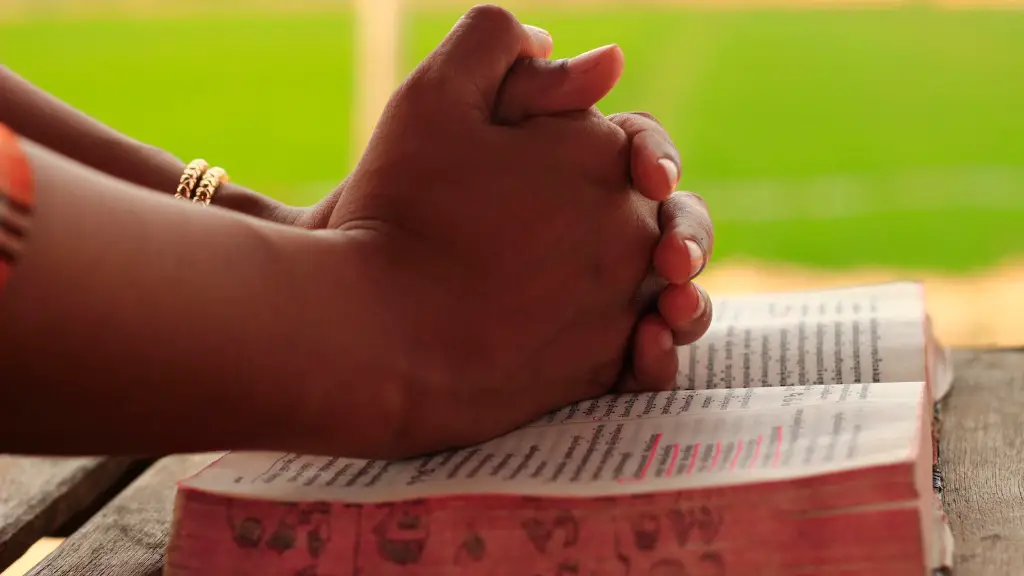No, the Bible does not say anything about Halloween. However, some Christians believe that Halloween is a pagan holiday and choose not to participate in it. Others believe that it is harmless fun and choose to celebrate it.
The Bible doesn’t mention Halloween explicitly, but it does talk about avoiding things like occult practices and idolatry. So while there’s no direct link between Halloween and the Bible, Christians might want to avoid participating in Halloween activities because of its connection to those things.
What does Christianity say about Halloween?
As a Christian, you are not obligated to participate in Halloween activities if you do not feel called to do so. You can focus on the harvest festival activities associated with Halloween instead if you prefer. There is no pressure to participate in Halloween if it does not align with your discernment.
The Bible doesn’t specifically mention Halloween, but that doesn’t mean it’s wrong to celebrate the holiday. There are many things in the Bible that aren’t specifically mentioned, but that doesn’t mean they’re wrong. As long as you’re not doing anything that goes against what the Bible teaches, you can celebrate Halloween however you want.
Does Halloween glorify God
God wants us to glorify Him in everything we do. This means we should seek to give Him honor and praise in all that we do. No detail is too small or insignificant. Glorifying God should be a part of every aspect of our lives, from how we eat and drink to how we celebrate a holiday.
October 31st became All Hallows Day Evening, or the night before the saints were venerated. That name eventually morphed into Halloween. It became the time when Christians could turn the supernatural symbolism and rituals of Samhain into spooky fun.
Should Christians be celebrating Halloween?
Halloween is a holiday that has been celebrated for centuries. It is a time when people dress up in costumes and go door to door asking for candy. For some, it is a time to celebrate evil, death, and darkness. However, Christians can participate in the holiday as a way to enjoy time with friends and family, engage the community around them, and be a light for Jesus in the hardest and darkest places like Halloween night.
Halloween is a popular holiday that is celebrated on the eve of All Saints’ Day. The word “hallow” means to consecrate or render holy by means of religious rites. Therefore, by hallowing the eve of All Saints’ Day, we are blessed and set apart this day to remember and honor all of the saints.
What religion did Halloween come from?
The Halloween holiday has its roots in the ancient Celtic festival of Samhain. This was a pagan religious celebration to welcome the harvest at the end of summer. People would light bonfires and wear costumes to ward off ghosts.
Halloween has its roots in Christianity, dating back to the Middle Ages. In those times, the poor would go to the homes of the wealthy on Hallowtide – the evening before All Saints’ Day – and offer prayers in exchange for food and beer. This tradition is thought to be the origins of trick-or-treating. Over time, Halloween has evolved into the holiday we now know, with many pagan and non-religious elements included. However, the Christian influence is still evident in some traditions, such as going door-to-door for candy.
Who created Halloween
Halloween’s origins can be traced back to the ancient Celtic festival of Samhain. The Celts, who lived in the area that is now Ireland, the United Kingdom and northern France, celebrated their new year on November 1. Samhain was a time to celebrate the end of the harvest and the beginning of the new year. It was also a time to honor the dead. The Celts believed that on the night before the new year, the boundary between the worlds of the living and the dead became blurred. On the night of October 31, they believe that the ghosts of the dead returned to earth. In order to appease the spirits, the Celts built huge bonfires, where they burned crops and animals as sacrifices to the gods.
The first Halloween-like festivities in America started in the southern colonies. People began to celebrate the harvest, swap ghost stories and even tell each other’s fortunes, likely a holdover from their countries of origin. However, those early fall festivals were known as “play parties” at the time.
What does Halloween mean in the church?
Halloween is thought to have influences from Christian beliefs and practices. The English word ‘Halloween’ comes from “All Hallows’ Eve”, being the evening before the Christian holy days of All Hallows’ Day (All Saints’ Day) on 1 November and All Souls’ Day on 2 November.
Some historians believe that Halloween practices have pagan origins, but there is evidence that Christian customs influenced the celebration. For example, the practice of dressing up in costumes may have come from the custom of masquerade balls that were popular in Europe during the Middle Ages.
Halloween is upon us and it is time to celebrate! This holiday is a powerful turning point in the wheel of the year, signifying the cycle of life, death and rebirth. On Halloween, we release and let go of negative and lower energies that hold us back and celebrate the new energy that will eventually take its place. This is a time to be joyous, to be free, and to celebrate all that we are!
What God is celebrated on Halloween
Samhain was a Celtic festival that honored the god of death. It was also known as All Hallowtide. This festival was likely held around the end of October or early November.
The “trick or treat” phrase is thought to come from Canada in the 1920s. It’s a reference to either tricking or disguising yourself, and treating, or getting a treat, at people’s doors. It’s a phrase that has evolved over the years.
Where did trick or treat come from?
The history of trick-or-treating is a long and storied one, tracing back to Scotland and Ireland. In these countries, the tradition of guising (going door-to-door and putting on a small performance to receive food or treats) dates back to at least the 16th century. This tradition of wearing costumes at Halloween also has its roots in Scotland and Ireland.
There are a variety of religious groups that do not celebrate Halloween. Some of the more notable groups include Russian Christians, Jehovah’s Witnesses, Muslims, and Hindus. The reasons for not celebrating vary from group to group, but generally center around the belief that Halloween is a pagan holiday that is not in line with their religious beliefs. While these groups may not celebrate Halloween themselves, many members of these groups do not have any objection to others celebrating the holiday.
Warp Up
No, the Bible does not mention Halloween specifically. However, it does talk about honoring God and avoiding idolatry and false worship, which are issues that could berelevant to Halloween.
There is no definitive answer to this question since there is no mention of Halloween in the Bible. However, some Christians believe that Halloween is a pagan holiday that should be avoided, while others believe that it can be a time to celebrate God’s creation and to witness to others about the gospel. Ultimately, each Christian must decide for themselves whether or not to celebrate Halloween.





